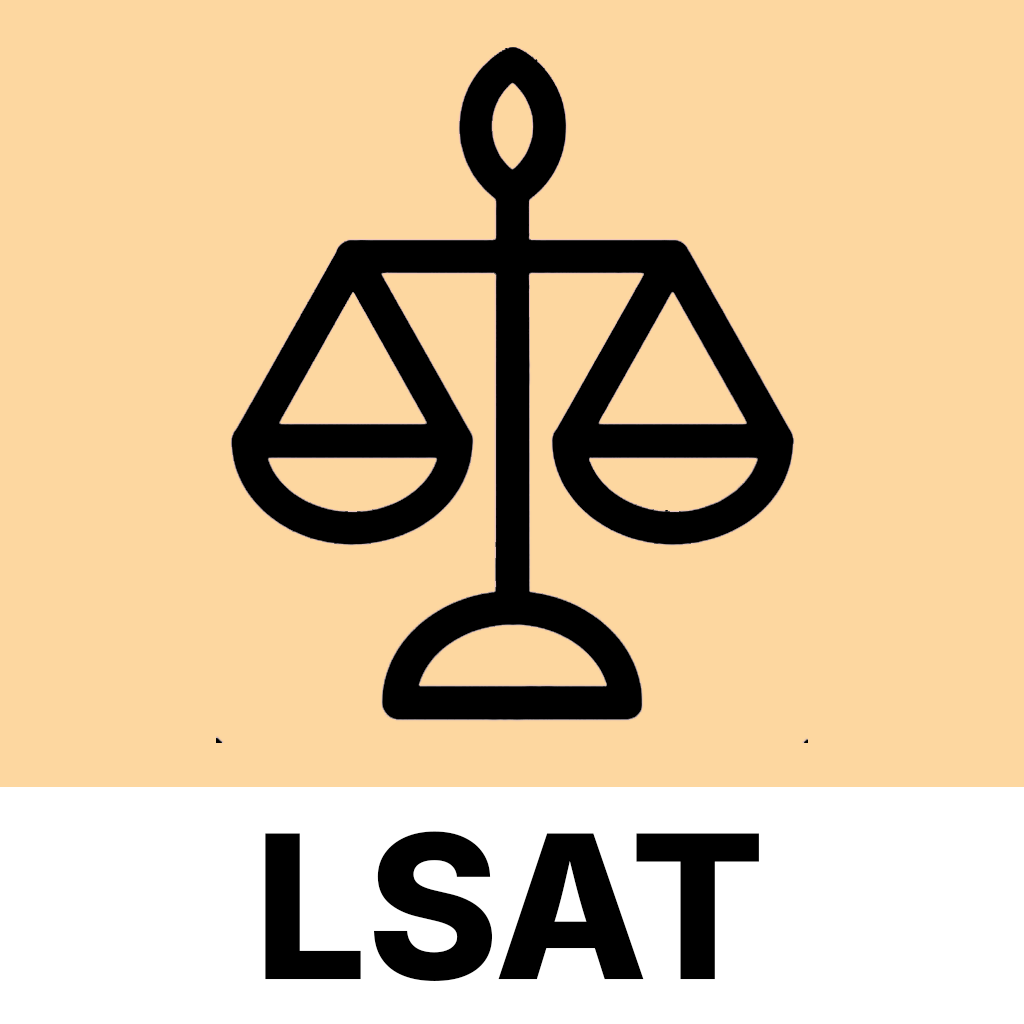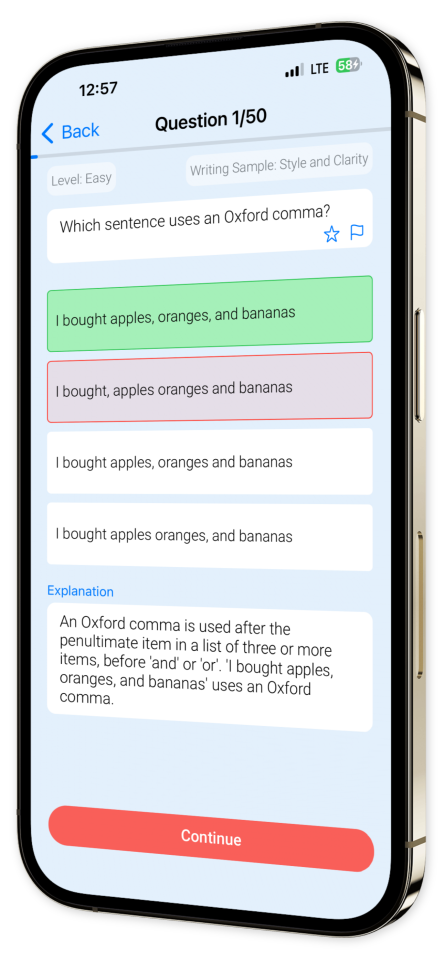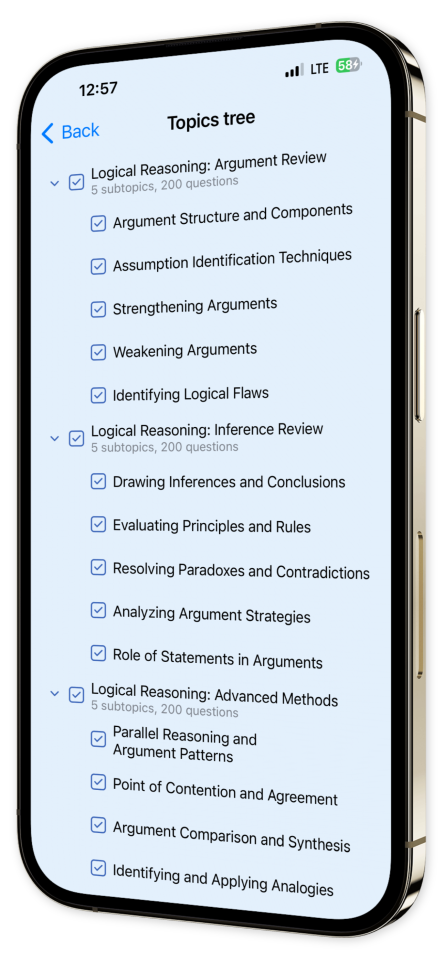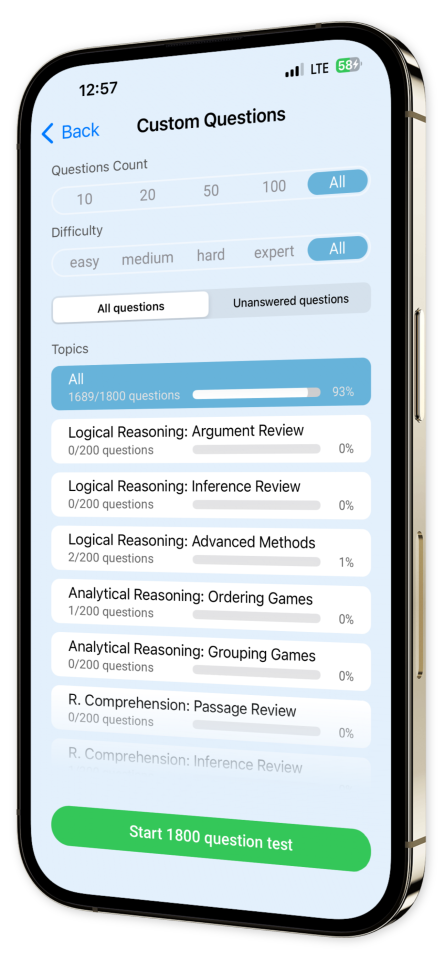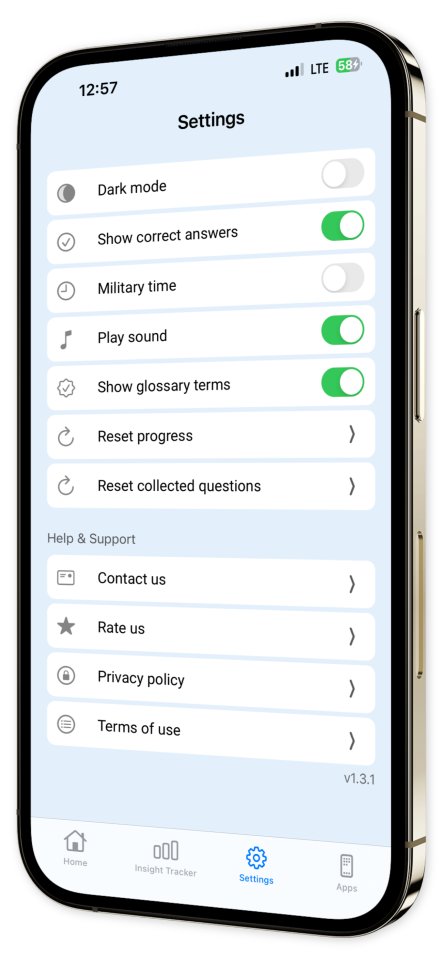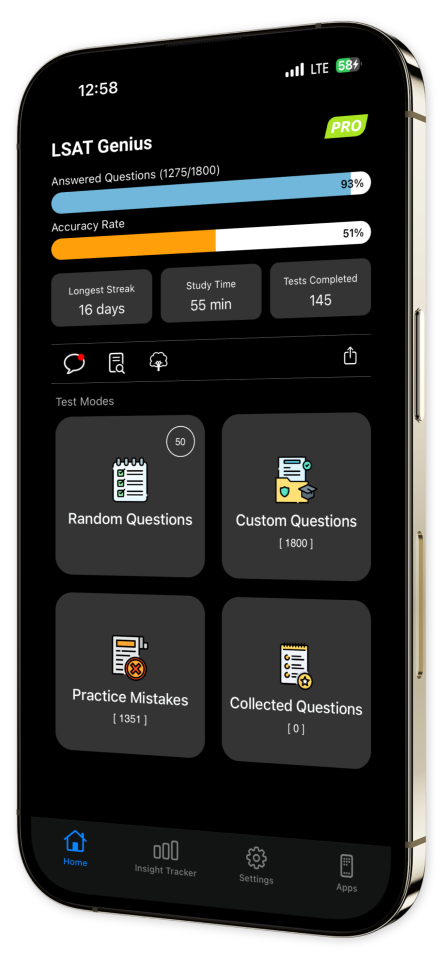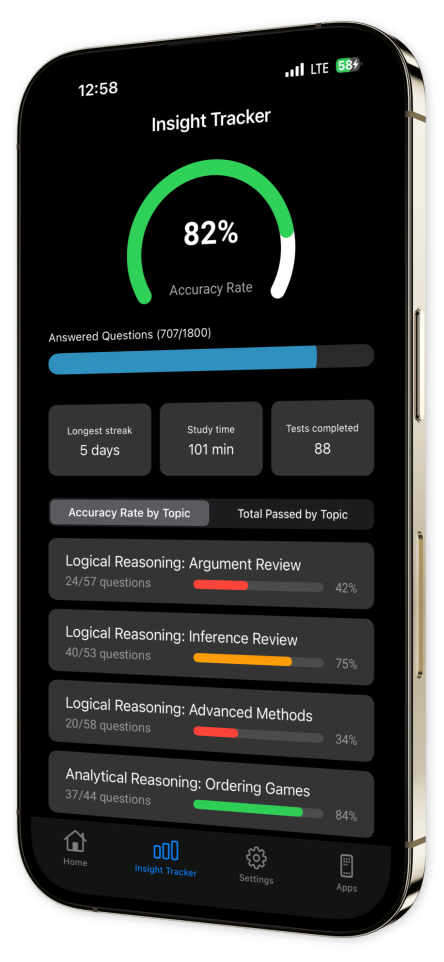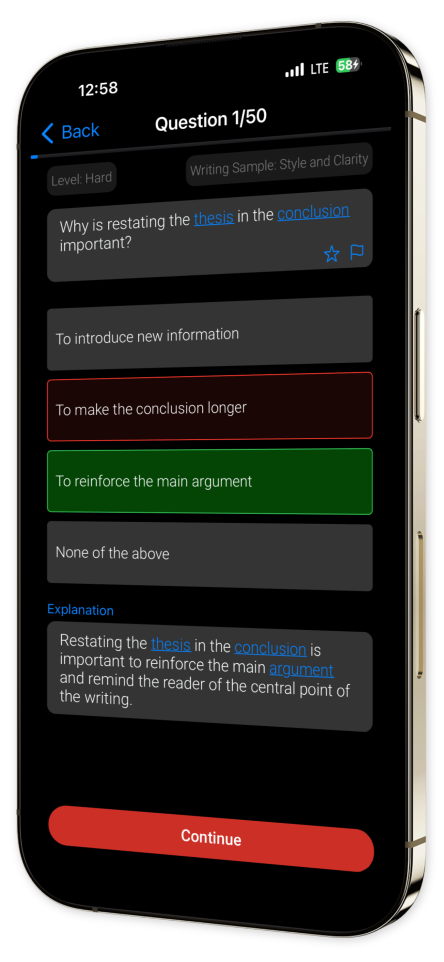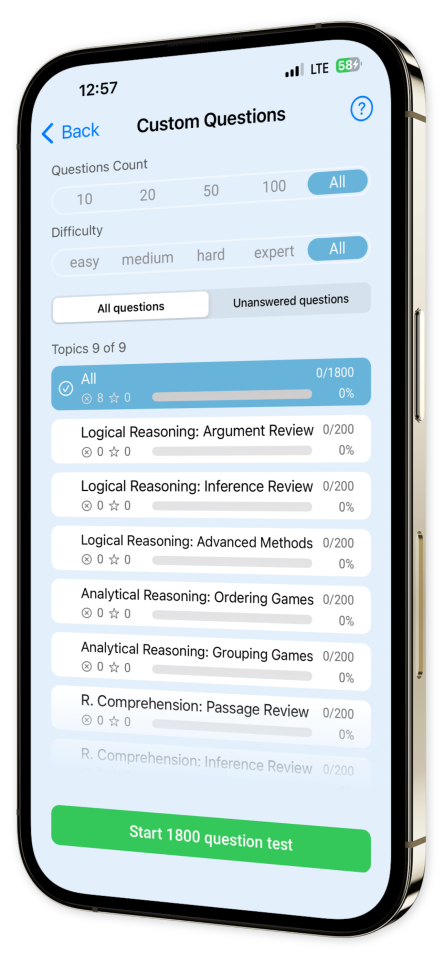
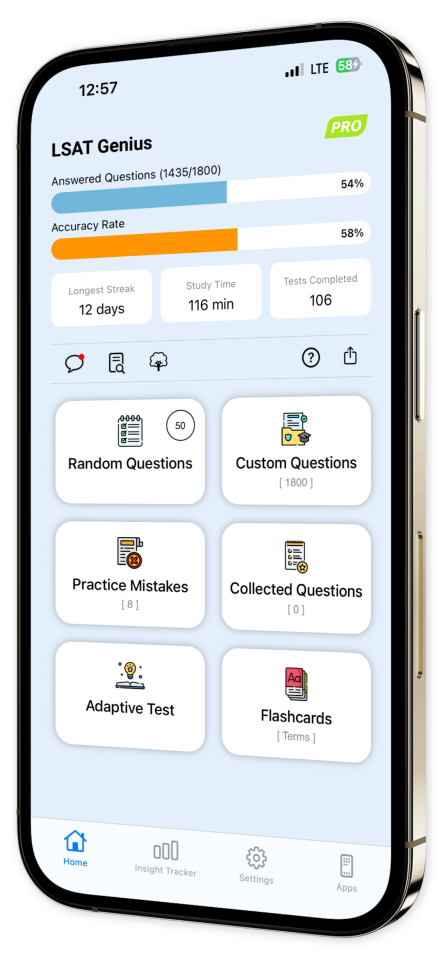
LSAT Genius iOS and Android App
Master the LSAT with Genius Precision!
Introducing LSAT Genius — the ultimate tool for conquering the LSAT and getting into the law school of your dreams. This app is designed for serious test-takers who want to sharpen their skills and maximize their score across Logical Reasoning, Analytical Reasoning, and Reading Comprehension.
Comprehensive LSAT Practice:
Delve into expertly crafted questions that mirror the complexity and nuance of the LSAT exam. From mastering logical puzzles to analyzing intricate reading passages, each question is designed to push your critical thinking skills and prepare you for every section of the test.
Tailored LSAT Test Creation:
Create customized tests to focus on specific sections such as logic games, assumptions, or strengthening/weakening arguments. Target your study sessions on the areas that need the most attention and track your improvement as you go.
In-Depth Performance Analytics:
Gain deep insights into your strengths and weaknesses with smart performance tracking. Analyze your progress across various sections of the LSAT and use the data to fine-tune your approach, ensuring you’re prepared for every challenge the test throws at you.
Thousands of future lawyers are using LSAT Genius to sharpen their skills and get ready for the big day. Download now and take your LSAT preparation to the next level!
Content Overview
Explore a variety of topics covered in the app.
Example questions
Let's look at some sample questions
Every cat has a tail. Some pets are cats. What can be concluded?
All pets have tailsSome pets have tailsNo pets have tailsSome pets do not have tails
From the given statements, it can be inferred that some pets have tails because every cat has a tail and some pets are cats. The other choices cannot be logically inferred from the given statements.
All birds can fly. Penguins are birds. What can we infer?
Penguins can flyPenguins cannot flyPenguins are not birdsNone of the above
The statement tells us that all birds can fly. Penguins are classified as birds, so it can be inferred that penguins can fly.
Which argument follows the same logic as 'If it is raining, I will use an umbrella. I am not using an umbrella, therefore it is not raining'?
If I am tired, I will go to bed. I am not in bed, therefore I am not tiredIf I am hungry, I will eat. I am not eating, therefore I am not hungryIf it is cold, I will wear a coat. I am not wearing a coat, therefore it is not coldIf it is hot, I will swim. I am not swimming, therefore it is not hot
The first alternative follows the same logic pattern as the example: If X then Y. Not Y, therefore Not X.
If the digits in the number 9876 are arranged in ascending order, which digit is last?
6789
In ascending order, the sequence is 6789. Hence, the last digit is 9.
If the sequence of numbers is in descending order and 8 is before 6, which number comes after 6?
7543
In a descending order sequence, 5 comes after 6.
If each of six students reads a different number of pages, who could have read the most pages?
The student who read fewer pages than JohnThe student who read more pages than MaryThe student who read fewer pages than SamNone of the above
If a student read more pages than Mary, then that student could have read the most pages.
In a line of six people, L is in front of M, M is in front of N and O, and P is behind Q. Who is at the front of the line?
LMNQ
From the given information, L is in front of everyone else.
If Paul, John, and George are in a band, and each plays one instrument among guitar, bass, and drums, who is the drummer if Paul doesn't play guitar and John plays bass?
PaulJohnGeorgeNone of them
Since Paul doesn't play guitar and John plays bass, George is the only one left to play drums.
In a race of four participants: Alex, Bob, Charlie, and Dan. If Alex finishes before Bob and Dan finishes before Charlie, who can be the third?
AlexBobCharlieDan
Since Alex finishes before Bob, Bob can't be first. And since Dan finishes before Charlie, Charlie can't be second. So, Bob can be the third.
How can the principle of 'cause and effect' be applied in historical analysis?
By analyzing the causes of historical eventsBy predicting future events based on past eventsBy ignoring the effects of historical eventsBy focusing only on the effects of historical events
The principle of 'cause and effect' can be applied in historical analysis by analyzing the causes of historical events and their effects. This helps in understanding the sequence of historical events and their impact.
